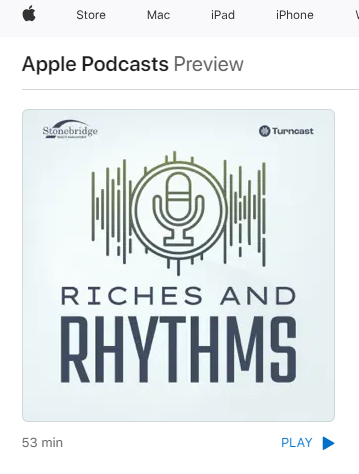Watching NYU Professor Aswath Damodaran's recent video, Catastrophic Risks in Business and Investing, reminded me of a music investors' conference I attended last summer in New York.
At the conference, every panel discussion among music investment experts dedicated a few minutes to the looming elephant in the room - artificial intelligence (AI) - and whether it poses a catastrophic threat to music earnings in the future and, thus, catalog values today.
There is a business tool called SWOT analysis, which identifies a subject's strengths, weaknesses, opportunities and threats. It was as if all of the conference speakers - music investing experts - had reached SWOT consensus on talking points that AI was an "opportunity," not a threat.
However, beneath this facade of optimism, perhaps there was denial? A psychologically predictable reluctance to confront the existential threat posed by AI to the music industry? None of the speakers delved into the tangible impacts of low-probability catastrophic AI risk on the valuation of music rights interests.
Yet, markets were already adapting based on perceived greater-than-zero risks and opportunities created when AI increases the supply of music at less cost to users than human-made sources (i.e., composers and performers). The largest music companies and some individual artists were already hedging by investing in AI initiatives. Investors were already reassessing portfolio allocations, seeking to invest in AI to balance their portfolios, leaving less cash available for human made music investments. And my firm was already incorporating in valuation projects the music sector's relatively high exposure to AI-related risk in two respects:
- Decreased prices (buyers/investors required greater return to compensate for greater relative risk)
- Increased costs of equity for firms (since investors demand greater returns)
As an astute expert on the value of music rights, I recognize the imperative of recalibrating risk premiums to reflect the evolving landscape. Therefore, I can not overlook the imminent specter of AI-induced disruption in the music industry, even if the probability is very low that the market for human-made music might erode catastrophically someday.
Drawing from the insights I gleaned years ago from Professor Damodaran's teachings at NYU, sector-wide risk is coalesced in the "beta" component of risk premiums in the discount rates we use to value income streams. The beta is where we should ideally adjust for the risk to a sector relative to the entire market for all sectors. The average beta across all investments is equal to one. For sectors with above-average risk, the beta will be greater than one. For below-average risk sectors, the beta will be less than one.
While my firm Boschan Corp.'s music sector research and beta calculations are confidential, here are Betas by Sector as well as a video from the Professor himself. Keep in mind, these betas might be used only for investors:
- Using the capital asset pricing model
- With diversified portfolios
Unfortunately, conventional methods for estimating betas remain rooted in historical data. Thus, they fall short in capturing the forward-looking nature of catastrophic risks. Hence, the need for a nuanced approach—one that accounts for the interplay between AI and the music industry, leveraging industry expertise and stakeholder insights to inform risk assessment.
At Boschan Corp. we undertake rigorous analysis to gauge the extent of AI integration within music companies (i.e., how much music companies are hedging with investments in AI), how much AI companies are investing in music, and we solicit diverse perspectives to ascertain the likelihood and magnitude of AI-induced disruptions ("How likely is it that half of all music consumed by consumers is not artist created by humans in the next ten years?").
Also, we can explore the merits of an alternate approach to address catastrophic risk on an asset or company-specific basis (not on a sector-wide basis) with valuations based on two or more cash flow forecasts:
- Assuming no catastrophe and
- Assuming catastrophic outcome(s)
Then, we apply the buyer/investors' risk probability to each scenario and sum the results.
In this case, how shall an investor estimate probability of the risk posed to the music industry by AI?
Whether through sector-wide adjustments or asset-specific valuations, the weakness of both methods is the same: How to determine the temporal and qualitative dimensions of catastrophic risk (i.e., probability over time and magnitude of the catastrophe).
In either case, in confronting the specter of catastrophic AI risks, human expertise remains our most potent weapon in mitigating uncertainty and seizing opportunity amidst disruption.
For investors navigating the labyrinth of uncertainty, Professor Damodaran's comprehensive resources on betas and risk dynamics serve as invaluable compasses, offering nuanced insights and practical frameworks to navigate uncharted terrain. He and NYU also have made available the following resources:




















.jpg)